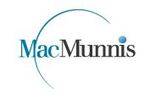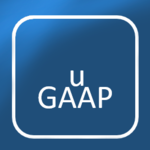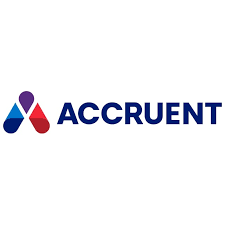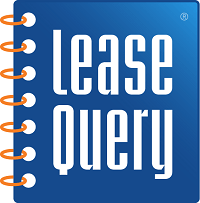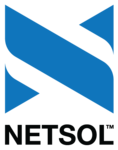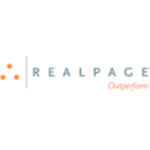"Yes, most modern lease accounting software options are accessible across multiple devices and platforms, allowing users to access their data and perform tasks from any location or device." This encompasses desktop computers, laptops, cellphones, and tablets, as well as operating systems including Windows, Mac, and iOS. This flexibility improves convenience and productivity, particularly for firms with remote or mobile personnel.
List of 20 Best Lease Accounting Software
InfoSite, now proudly integrated into the Nakisa software suite! Our enhanced asset management solution, in partnership with Nakisa Real Estate, combines the strengths of both teams for the best in lease management and accounting. Unlock a robust sol...Read More InfoSite
ProLease is a lease management software designed to streamline your lease administration process. It offers a comprehensive range of user-friendly features that enhance tracking, reporting, and compliance. With ProLease, you can increase efficiency,...Read More ProLease
Experience the power of Leaselogistix is a lease management software that streamlines your operations and transforms your leasing experience. Featuring automated tracking, real-time analytics, and customizable reporting, Leaselogistix is solution for...Read More Leaselogistix
MILM ++ solution for optimizing lease management. This high-performance software offers a range of advanced features and in-depth analytics, empowering real estate teams to streamline operations and unlock potential savings. Say goodbye to manual tas...Read More MILM ++
ASPIRE Lease is a lease management software designed to streamline and simplify the entire process. Say goodbye to manual data entry and hello to automated reminders, real-time tracking, and detailed reporting. Experience improved efficiency and accu...Read More ASPIRE Lease
LeaseMan is a lease management software that is designed to simplify lease organization and tracking for tenants. Our software offers a tailored solution that streamlines lease administration and ensures no critical information is overlooked. Say goo...Read More LeaseMan
Trullion is a SaaS solution that uses cutting-edge AI technology to simplify accounting processes for CFOs, Accountants, and Auditors. With its seamless integration of structured and unstructured accounting data, Trullion eliminates the hassle of man...Read More Trullion
UGAAP, the premier lease accounting software designed to seamlessly comply with ASC 842, GASB 87/96, and IFRS 16 regulations. With a user-friendly interface and professional guidance, UGAAP provides essential financial reports, making the transition...Read More UGAAP
Nomos One solution for all your lease accounting needs. This cutting-edge cloud-based software is designed to seamlessly comply with IFRS 16 regulations and simplify the calculation of PVFMLP. Say goodbye to tedious manual calculations and put your t...Read More Nomos One
Accruent Lucernex is a Lease Management software designed for SMEs, Enterprises, and Agencies. It offers a wide range of features, including Accounting Management, Document Management, Lease Origination, and Portfolio Management, in a single user-fri...Read More Accruent Lucernex
LeaseQuery is a highly reliable and popular cloud-based solution for managing lease accounting. It is used by over 500 companies and is compatible with GAAP, IFRS 16, and ASC 842 standards. This makes it the perfect choice for ensuring accurate and c...Read More LeaseQuery
ManagePath solution for streamlining the real estate process. With cutting-edge tools for lease management, project tracking, and portfolio management, this software offers real-time data and effortless integration for real estate experts. Elevate yo...Read More ManagePath
NFS Ascent is the software revolutionizing the finance and leasing industry. Powered by advanced AI technology, it offers integrated solutions for increased productivity, streamlined processes, and a seamless customer experience. Stay ahead of the co...Read More NFS Ascent
LRO, a revenue management platform that utilizes cutting-edge data analytics and AI technology to optimize rental pricing. With its advanced features and ability to adapt to changing market trends and resident preferences, LRO empowers property manag...Read More LRO
Peruse Software: a trusted and established solution provider for lease management and accounting needs. Based in Manchester, NH, our cost-effective offerings, including Franchise-IQ and Lease-IQ, streamline business operations. Our innovative approac...Read More Peruse Software
Leasepath is a software solution tailored for companies in the asset finance industry. This cloud-based platform seamlessly integrates with Microsoft Dynamics CRM, offering and user-friendly experience. With its advanced features, Leasepath helps bus...Read More Leasepath
Leasecat the leasing software for tenants and landlords. Our cutting-edge platform simplifies and streamlines the entire leasing process, from listing properties to signing leases. With an intuitive user interface, Leasecat ensures a seamless experie...Read More Leasecat
Discover the power of CL Lease is a leasing software designed to streamline equipment financing and boost productivity. With our cutting-edge features, you can effortlessly handle billing, payments, and portfolio monitoring, making the entire process...Read More CL Lease
BlueSky Portfolio Manager is a lease management tool for efficiently tracking, monitoring, and reporting your entire portfolio. Say goodbye to risks and high administrative costs, and stay compliant with the latest lease accounting regulations. With...Read More BlueSky Portfolio Manager
Spacebase solution for lease accounting and management. Our user-friendly platform streamlines your real estate operations with seamless integrations, customizable reporting, and top-notch security. Say farewell to manual tasks and welcome efficient...Read More Spacebase
Learn More About Lease Accounting Software
- What Is Lease Accounting Software?
- What Are The Recent Trends In Lease Accounting Software?
- Benefits Of Using Lease Accounting Software
- Important Factors To Consider While Purchasing Lease Accounting Software?
- What Are The Key Features To Look For In Lease Accounting Software?
- Why Do Businesses Need Lease Accounting Software?
- How Much Time Is Required To Implement Lease Accounting Software?
- What Is The Level Of Customization Available In Lease Accounting Software?
- Which Industries Can Benefit The Most From Lease Accounting Software?
- Conclusion
What Is Lease Accounting Software?
Lease accounting software is a sort of specialist accounting software that helps firms and organizations manage and track their leasing activity. It simplifies the lease accounting process and assures adherence to accounting standards, such as the new ASC 842 and IFRS 16 requirements. This program enables organizations to reliably and efficiently record, classify, and report on lease transactions, as well as get real-time visibility and control over their lease portfolios.
Lease accounting software automates the complex calculations and journal entries required for lease accounting, such as lease categorization, amortization, and expenditure recognition. It also allows users to generate extensive lease reports, such as balance sheets and revenue statements, and maintain a thorough audit trail for leasing data. Aside from accounting skills, current lease accounting software includes features that address the unique demands of lease management, such as lease document management, alerts for lease expirations and renewals, and a centralized database for keeping all lease-related information.
Some software even interfaces with lease administration and procurement systems, ensuring that lease data flows seamlessly across several platforms. Lease accounting software may be an excellent investment for organizations of all sizes because it not only helps to maintain correct financial records but also saves time and effort, decreases the chance of errors, and enhances lease portfolio management.
With recent revisions to lease accounting rules, it is even more important for organizations to have a dependable and effective lease accounting software solution in place. By carefully analyzing the features and capabilities of various software alternatives, customers may choose the greatest fit for their organization's leasing needs and effectively manage their lease accounting obligations.
What Are The Recent Trends In Lease Accounting Software?
The lease accounting software industry is always evolving, with new trends and advances emerging to meet the changing needs of businesses. As a buyer, it is critical to stay current on these recent developments in order to make an informed decision for your firm.
These are the latest trends in lease accounting software to help you better understand the market.
1. Cloud-Based Solutions: One of the most significant recent trends in lease accounting software is the transition to cloud-based solutions. Because of their cost-effectiveness and flexibility, organizations are increasingly turning to cloud-based solutions rather than traditional on-premise software. These solutions support remote access, automated upgrades and backups, and can manage massive amounts of data, making them a popular choice for enterprises of all kinds.
2. Automation And Artificial Intelligence: As lease agreements get more complicated and reliable reporting is required, lease accounting software is increasingly incorporating automation and artificial intelligence (AI) capabilities. This approach enables software to undertake onerous and time-consuming processes including data entry, lease classification, and report generation. This increases efficiency, minimizes errors, and frees up critical time for finance teams to devote to strategic activities.
3. Integration With ERP And Accounting Systems: Another new development is the incorporation of lease accounting software into enterprise resource planning (ERP) and accounting systems. This connection enables the seamless flow of data between various systems, removing the need for human data entry and lowering the likelihood of errors. It also provides a comprehensive view of the organization's financial data while streamlining the financial closing process.
4. Improved Compliance And Disclosure Features: With the revisions to lease accounting standards, there is a renewed emphasis on compliance and disclosure obligations. Lease accounting software now includes built-in lease classification tests, lease audit trails, and disclosure reporting tools to help assure compliance with the new criteria.
5. Real-Time Reporting And Analysis: As firms adapt to a fast-paced industry, real-time reporting and analytics have become increasingly important. Lease accounting software now includes dashboards and configurable reports, allowing finance teams to quickly access lease data and insights into key parameters such as lease payments, lease schedules, and financial consequences, resulting in better decision-making.
Benefits Of Using Lease Accounting Software
Lease Accounting Software is an invaluable resource for firms that manage lease agreements for equipment, property, or other assets. This program streamlines the process of registering and managing leases, which has various advantages for businesses of all sizes.
Here are some of the major benefits of adopting lease accounting software:
1. Improves The Lease Administration Process: Lease Accounting Software allows firms to simply store and access all lease-related information in a single spot. This eliminates the need for human record-keeping, lowering the likelihood of errors and missing data. The software also enables quick and easy monitoring of lease terms, payments, and other vital facts, making lease administration more efficient and structured.
2. Improves Accuracy And Compliance: Lease Accounting Software automates calculations for lease liabilities, asset values, and expenditure recognition, ensuring lease accounting is accurate. This lowers the possibility of human error and assures compliance with accounting requirements like ASC 842 and IFRS 16. Additionally, the software generates leasing reports and disclosures that meet regulatory requirements.
3. Improves Financial Visibility: Lease Accounting Software integrates with the company's accounting system, providing real-time visibility into lease-related expenses and obligations. This enables firms to make more educated financial decisions and precisely predict lease-related expenditures in the long run.
4. Improves Lease Negotiation: Lease Accounting Software enables businesses to conduct lease analysis and scenario planning to assess alternative lease choices and negotiate better terms with lessors. This tool enables organizations to make informed decisions that are consistent with their financial goals and objectives.
5. Saves Time And Resources: Using Lease Accounting Software eliminates the need for manual data entry, reducing the time and effort required for lease administration. This enables firms to focus their resources on more important tasks, increasing overall efficiency and production. Given the complexities of lease accounting and the enormous influence it has on a company's financial statements, investing in Lease Accounting Software is a sound decision for any organization. It simplifies the lease management process while simultaneously ensuring accuracy, compliance, and financial visibility. Businesses may use the correct Lease Accounting Software to successfully manage their leases and make educated decisions that contribute to their overall performance.
Important Factors To Consider While Purchasing Lease Accounting Software?
When it comes to selecting the best lease accounting software, there are various variables to consider. Making the wrong decision can lead to costly blunders and the waste of critical time, so conduct your homework and ensure that the software meets your company's demands.
To make an informed decision, here are the main aspects to consider when selecting lease accounting software:
1. Compliance With Lease Accounting Standards: Given the current lease accounting standards, it is critical to select software that complies with the most recent requirements. To prevent future compliance concerns, the software should handle both existing and new accounting requirements, such as ASC 842 and IFRS 16.
2. User-Friendly Interface: The software's ease of use is an important feature to consider. Even non-technical users should find the software easy to use and navigate. This will ensure a smooth transition while reducing training time and costs.
3. Integration Capabilities: Your lease accounting software should work seamlessly with your existing accounting systems and any other relevant apps. This will allow for more efficient data transfer, fewer duplicate entries, and more overall productivity.
4. Customizable Features: Each firm is unique, and their lease accounting processes should be as well. Look for software with adjustable capabilities to meet your specific business demands. This could contain custom reports, alerts, or workflows.
5. Scalability: As your company develops, so will the amount of leases you need to manage. It is critical to select software that can handle your present lease portfolio and grow with your company without limitations.
6. Data Security: Lease accounting contains sensitive financial data, so ensure that the software you use has strong security mechanisms in place. To protect your information, choose software that includes data encryption, multi-factor authentication, and secure data backups.
7. Customer Support: When you run into technological difficulties or require assistance with software, a dependable customer care service might come in handy. Make sure that the software vendor provides 24-hour customer assistance to handle any problems or issues that may occur.
By taking these aspects into account, you can make an informed decision about the best lease accounting software for your business. Remember to study reviews, seek demos, and compare software suppliers before making a decision. Investing in the proper software not only streamlines your lease accounting operations, but it also ensures compliance and improves overall efficiency and accuracy.
What Are The Key Features To Look For In Lease Accounting Software?
When contemplating investing in lease accounting software, there are a few crucial characteristics to look for to guarantee you receive the finest product for your requirements. These features will not only help to streamline your lease accounting process, but will also guarantee accuracy, compliance, and efficiency.
Here are the key things to look for in leasing accounting software:
1. Cloud-Based Or On-Premise: The first step is to decide if you want to employ cloud-based or on-premise software. Cloud-based software enables remote access and automatic upgrades, although on-premise software may provide greater control over data security.
2. Lease Monitoring And Management: The program should allow you to track and manage all of your leases from a single spot. This should include information about lease terms, payments, and paperwork.
3. Automated Lease Calculations: One of the most time-consuming and error-prone jobs in lease accounting is carrying out complex calculations. Look for software that calculates lease payments, interest, depreciation, and other variables automatically.
4. GAAP And IFRS Compliance: Depending on your location and industry, your lease accounting must adhere to either the Generally Accepted Accounting Principles (GAAP) or the International Financial Reporting Standards (IFRS). Ensure that the program meets your specific standards.
5. Integration With Other Systems: It is critical that your lease accounting software integrates with your existing accounting and ERP systems. This will eliminate data entering errors while saving time.
6. Customizable Reporting: Your organization's stakeholders may require various types of reports. Look for software that provides flexible reporting choices to fit the demands of different departments.
7. Lease Audit And Reconciliation: A good lease accounting software should have tools for auditing and reconciling leases to verify accuracy and discover problems.
8. Automated Reminders And Alerts: Delays in lease payments or expirations might have financial and legal ramifications. Choose software that can provide automated reminders and notifications to avoid missing deadlines.
9. Audit Trails And Security Measures: To maintain data integrity, the program should have audit trails that record any changes or additions to lease information. It should also include security measures to secure sensitive data.
10. User-Friendly Interface: Last but not least, the program should have an intuitive interface that is simple to explore and use, especially for individuals with less accounting experience.
Why Do Businesses Need Lease Accounting Software?
Businesses use lease accounting software to properly manage lease agreements, track lease payments and expenses, meet accounting standards, and comply with regulatory requirements. This tool simplifies the lease administration process by providing organizations with reliable and timely information to help them make strategic financial decisions. First and foremost, lease accounting software helps businesses comply with accounting standards such as ASC 842 and IFRS 16, which require leases to be disclosed on the balance sheet.
Lease accounting software allows businesses to quickly track and report lease liabilities and assets, resulting in accurate financial statements while avoiding penalties or legal ramifications. Furthermore, this tool eliminates the need for manual computations and automates the entire lease accounting process, saving businesses valuable time and money.
It automates procedures such as lease classification, interest computation, and lease payments, reducing the potential of human error and increasing productivity. Furthermore, lease accounting software gives businesses a unified view of all leasing arrangements, improving transparency and insight into their lease portfolio. This enables businesses to make better judgments about lease renewals, terminations, and negotiations.
Furthermore, this application helps businesses optimize their lease expenses by providing information on the total cost of a lease, including rent, taxes, and fees. Businesses can utilize this information to negotiate better lease terms and avoid costly mistakes such as late payments or fines. Another key feature of leasing accounting software is the ability to generate exact and detailed financial reports. This allows firms to assess their lease portfolio, make data-driven decisions, identify potential cost savings, and detect lease-related threats.
How Much Time Is Required To Implement Lease Accounting Software?
The implementation time for lease accounting software varies depending on several aspects, including your organization's size and complexity, the extent of customisation required, and whether you already have lease data in a standardized format. Implementing lease accounting software can take anywhere from a few weeks to several months. The initial setup and configuration of the software can consume the majority of the implementation time.
This includes integrating the program with your current systems, configuring user access, and building a chart of accounts for your leasing data. The next step is to enter all of your current lease contracts into the software. This process might be time-consuming, especially if you have a lot of leases. Furthermore, if your leases do not follow a standard format, you may have to manually enter data. Once all lease data is entered into the system, the software will use its accounting rules and computations to accurately calculate lease payments and generate the necessary journal entries.
This technique may necessitate some testing and adjustments to guarantee that the numbers are correct. Following the initial setup and data entry, training and familiarization with the software will require some time. To ensure a successful transition to lease management, your team must first learn how to utilize the software and its capabilities. Keep in mind that certain lease accounting software vendors provide implementation support and assistance to help streamline the process and minimize overall time requirements.
What Is The Level Of Customization Available In Lease Accounting Software?
When shopping for lease accounting software, customization is an important consideration. It refers to the software's ability to be customized to match the unique demands and requirements of a business. The amount of flexibility available in lease accounting software can have a substantial impact on how well it manages a company's leases. When it comes to customisation, there are two major factors to consider: user interface and functionality.
Let's take a deeper look at each of these aspects and the level of flexibility accessible to us. User Interface Customization: Most lease accounting software allows customers to personalize the user interface to meet their specific preferences and requirements. This provides choices for changing the layout, color design, and appearance of the software.
Some complex software may additionally include drag-and-drop functionality, allowing users to reorganize and organize the interface based on their workflow. Functionalities Customization: This feature focuses on the software's main functionalities and the level of flexibility it provides in terms of customization. The extent of modification varies according to the software's sophistication.
However, most lease accounting software allows you to customize crucial services including lease classification, accounting procedures, and calculations. Some software may even allow users to construct bespoke reports and dashboards to examine leasing data in a way that is tailored to their specific company needs. It is important to note that the level of customisation available is also determined by the buyer's preferred pricing plan. Some software may provide more customisation options, albeit at an additional expense.
Which Industries Can Benefit The Most From Lease Accounting Software?
Lease accounting software is an extremely useful tool for businesses in a range of industries. This powerful program simplifies the process of recording and maintaining leasing agreements, giving firms accurate and up-to-date financial data.
The following industries can benefit the most from lease accounting software:
1. Real Estate: Lease agreements are used extensively in the real estate market, whether for commercial or residential buildings. Lease accounting software enables real estate organizations to effortlessly handle lease payments, monitor lease terms and conditions, and provide financial reports for both renters and landlords.
2. Retail: Lease agreements are essential for store sites, warehouses, and delivery hubs. Lease accounting software can assist retail enterprises in managing their lease agreements, calculating rent payments, and tracking lease renewals, offering a clear picture of their financial commitments.
3. Healthcare: Healthcare firms frequently have a diverse range of leases, including medical equipment, office space, and vehicle leases. Healthcare organizations can use lease accounting software to easily manage lease portfolios, track spending, and maintain compliance with industry laws.
4. Airlines: The aviation industry relies heavily on leases for aircraft, engines, and other equipment. Lease accounting software can assist airlines in monitoring their lease agreements, calculating expenses, and generating financial reports, offering a clear picture of their leasing commitments and enhancing cost management.
5. Manufacturing: Manufacturing organizations frequently lease equipment and machinery to meet their production objectives. Lease accounting software allows them to handle lease payments, monitor lease terms, and estimate cash flow, resulting in a smooth and effective production process.
6. Technology: With the rapid evolution of technology, businesses frequently lease software, hardware, and other technological equipment. Lease accounting software can assist technology businesses in tracking leases and managing expenses, hence giving reliable financial data for decision making.
Conclusion
After conducting considerable research and reviewing several lease accounting software choices, it is evident that choosing the best solution for your company is critical. The use of dependable and effective lease accounting software may significantly speed your leasing process, enhance accuracy, and assure compliance with the most recent accounting standards. When selecting lease accounting software, it is critical to evaluate your company's unique demands and requirements.
Evaluate your existing lease procedure and identify the obstacles you are encountering. This will assist you in determining which features and functionality are necessary for your organization. Additionally, analyze the software's pricing structure and ensure it works inside your budget. Look for options with flexible payment plans or a free trial period to evaluate the program before making a complete commitment. It is also critical to assess the software's usability and user friendliness. Look for a system with an intuitive design and user-friendly interface that can be readily handled by team members with diverse technical expertise.
Furthermore, pay attention to the software vendor's customer support. A dependable and professional support team can assist you with troubleshooting any issues that may emerge and ensure a smooth installation process. Finally, ensure that the program can integrate with your existing systems, such as accounting or ERP software. Seamless integration can save time and increase efficiency by eliminating the need for manual data entry.
In conclusion, selecting the correct lease accounting software necessitates careful evaluation of your individual requirements, pricing flexibility, user-friendliness, good customer support, and compatibility with your existing systems. Keep these aspects in mind as you make an informed selection and choose a solution that best meets your company's lease accounting requirements.
Lease Accounting Software FAQ's
Can Lease Accounting Software Be Accessed Across Multiple Devices And Platforms?
Is Lease Accounting Software Future-Proof And Adaptable To Emerging Technologies Like AI, Blockchain Or IoT?
Yes, most modern lease accounting software solutions are built to be future-proof and easily adaptable to new technologies like AI, blockchain, and IoT. These tools use powerful algorithms and data analytics to automate and improve lease management procedures. With regular upgrades and integrations, they can simply embrace new technology and keep current with industry changes, bringing long-term value to enterprises.
Is There A Free Trial Offered To Assess Lease Accounting Software Before Committing?
Yes, many lease accounting software vendors provide a free trial before you commit to their platform. This lets users to evaluate the software's features, functionality, and usability to ensure that it fits their requirements. Some providers may offer a limited free trial period, whereas others may limit the number of transactions that can be recorded. It is encouraged that you use these free samples to make an informed selection.
Does Lease Accounting Software Offer Data Security Features And Meet Regulatory Compliance Standards?
Yes, most lease accounting software systems have data security measures and meet regulatory requirements. Data encryption, access limits, and automated backups are all used to protect sensitive financial information.
Lease accounting software is also developed to comply with international accounting standards such as ASC 842 and IFRS 16, as well as regulations such as GAAP and Sarbanes-Oxley (SOX). This gives organizations with piece of mind while also ensuring accurate and compliance financial reporting.
Can Lease Accounting Software Integrate Seamlessly With Existing Tools And Platforms?
Yes, most current lease accounting software is intended to work easily with existing tools and platforms. This provides for a more streamlined and effective workflow by reducing the need for manual data entry and information transfer between systems. Furthermore, this connectivity ensures that data is accurate and consistent across all platforms, lowering the possibility of errors. Overall, this connection streamlines and improves the lease accounting process for organizations.




